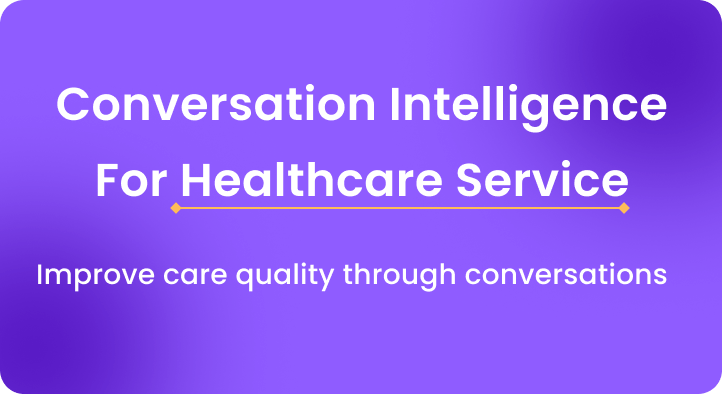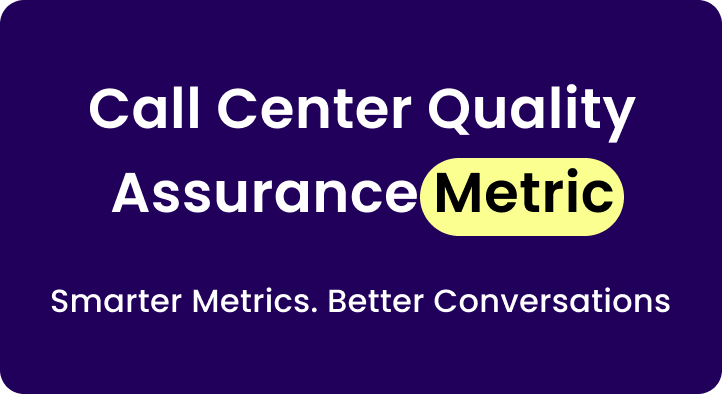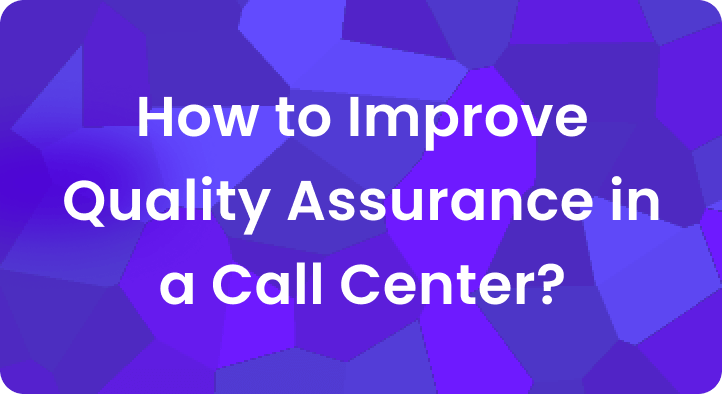Agent evaluations are critical in any call center. They impact coaching, promotions, incentives, and team morale.
But here’s the reality – traditional evaluation methods are often biased, even if unintentionally.
Supervisors bring personal preferences. QA analysts hear calls differently. Some agents get more attention than others.
And when only a few calls per agent are reviewed, the feedback can feel arbitrary or unfair.
AI changes that. It brings structure, consistency, and scale to the evaluation process. But how exactly does it remove bias?
Let’s break it down.
1. AI Evaluates 100% of Interactions – No random sampling
In most contact centers, only 2 to 5 percent of calls are reviewed.
That means 95 percent of an agent’s work goes unseen. If the few calls selected happen to be bad days, that agent’s evaluation is skewed.
AI flips this.
It analyzes every call, chat, or email, not just a random sample.
This means:
- You get a complete picture of agent performance
- No one gets judged on a handful of outliers
- Trends are more accurate and representative
Full coverage removes the luck factor. It’s no longer about which calls get picked.
It’s about how the agent performs across their entire workload.
2. Every Agent Is Scored Using the Same Criteria
Bias often shows up when different people apply rules in different ways.
One QA analyst might dock a point for tone. Another might give the same call a pass.
AI solves this by applying standardized, predefined rules to every evaluation.
These rules are based on your organization’s scorecard and guidelines.
For example:
- Did the agent verify the customer?
- Was the compliance disclaimer read word-for-word?
- Was the issue resolved or escalated correctly?
- Did the agent interrupt the customer more than once?
Each rule is checked consistently, for every agent, on every call.
This consistency helps agents feel the process is fair, which builds trust and improves buy-in during coaching.
3. AI Removes Human Emotions From the Equation
Even the best QA analyst can have an off day. Maybe they’re frustrated.
Maybe they just reviewed five poor calls in a row. That context can influence how they hear the next call.
AI doesn’t carry emotional baggage.It doesn’t get annoyed if an agent’s tone feels flat. It doesn’t over-praise just because the last five calls were terrible.
It evaluates based on behavior and data, not mood or assumptions.
This emotional neutrality is one of AI’s biggest strengths in performance evaluations.
4. It Detects Patterns, Not One-Off Mistakes
A single missed step might not mean much. But when it becomes a pattern, that’s where coaching should start.
AI excels at pattern recognition.
It tracks:
- How often an agent misses verification steps
- If certain call types consistently lead to escalations
- Which agents have rising or falling sentiment trends
- Whether empathy is present across calls or just once in a while
This ability to look at behavior over time gives a much more balanced view. It also helps avoid punishing agents for one-off errors while missing bigger improvement opportunities.
5. It Supports Transparent, Data-Backed Feedback
One of the biggest complaints agents have about evaluations is vagueness.
They hear things like:
- “Watch your tone.”
- “Try to sound more confident.”
- “You missed something in the greeting.”
But with AI, you can show agents exactly what happened:
- The transcript of the call
- The specific timestamp at which the issue occurred
- The rule that was violated or met
- How their performance compares to past calls or peers
This creates clear, objective coaching conversations instead of personal judgments. Agents know the feedback is based on data, not opinion.
6. Supervisors Can Focus on Coaching, Not Defending Scores
When evaluations feel unfair, coaching sessions turn into debates.
- Why did I lose points?
- Why wasn’t that call counted?
- Why do I always get flagged and others don’t?
AI takes most of that tension out of the room.
Because evaluations are consistent, data-driven, and backed by call transcripts, managers can focus on helping agents improve instead of justifying the score.
That shift leads to more productive coaching, better agent morale, and stronger performance.
7. You Can Audit the AI and Improve It Over Time
AI isn’t perfect. But the best systems let you review, adjust, and audit how scores are generated.
You can:
- Tune the rules as business needs change
- Adjust weightings on different criteria
- Review flagged calls for accuracy
- Add nuance based on human context when needed
The key is that the process is transparent. You can see how the score was calculated, and you can explain it.
That level of visibility is impossible with fully manual, subjective evaluations.
Conclusion
AI doesn’t eliminate bias completely. But it removes the most common sources of unfair evaluations in call centers:
- Incomplete data
- Human inconsistency
- Emotion-based decisions
- Sample-size problems
By reviewing every interaction and applying the same standards across the board, AI makes agent evaluations more accurate, more fair, and more actionable.
Agents trust the process more. Managers spend less time defending scores. And the entire team has a clearer path to improvement.
If your current evaluation system feels random, rigid, or frustrating, AI gives you a better way – one that’s rooted in data, not guesswork.



